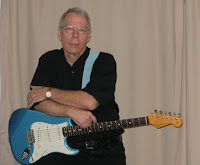
Anyone familiar with much of my work will know my characters are almost always heavily flawed. Some people have come out and said they don't like them because they're not 'nice' enough. My problem? I want to write even darker more flawed characters in darker stories. I've set out to do it a couple of times, but each time I go soft and pull back. My characters turn out flawed, but not as hard as I wanted originally.
I have no one to blame but myself. I rush to get my rawest, often unfinished first draft into the hands of my beta readers, then I let their comments influence where the story goes. It's certainly not their fault. They're doing exactly what I have asked them to do. I need to stop asking it. Instead, I need to wait until the draft has gone through some polish before asking others to look at it.
Ultimately, I need to grow a set and start trusting my own judgment. I have 9 novels published, with a few others in the chute. Isn't it time I trusted myself? Write my story the way I want it written? Let it stand or fall once it's done, not water it down during the first draft because my own doubts leave me unsure of my ability to finish such a book with a strong, if unpopular ending.
In one novel, I waffled and eventually softened my main protagonist's rough edges. I made him nicer. I put him safely back in his flawed hero-with-a-heart-of-gold instead of the truly flawed character who screws up at the end, whose flaws lead to tragedy.
So how about you? Have you ever pulled back from where you wanted to go with a character or storyline because you were told it was too unlikable? The character too nasty?

